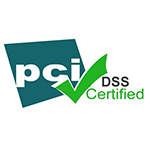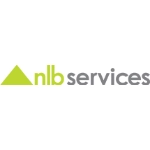© 2025 Next Level Business Services Inc. All Rights Reserved.
Accounting Interview Questions You Need to Prepare
By NLB Services
Accounting is an evergreen profession, with a consistent demand throughout the year in every industry. Accounting can be a great career option for those who are interested in pursuing it and for those who have a flair for numbers, spreadsheets, and balance sheets. To make a mark in your career as an accountant, you need to have a solid understanding of the principles of finance and accountancy. When your studies are over and you are planning to attend an accountant interview, there are common accounting interview questions that may be asked of you. In our blog, we will be covering basic accounting questions that will help you to prepare and crack the interview like a pro. Read on:
Technical questions about accounting principles and practices
How do you define and calculate the following financial ratios: current ratio, debt-to-equity ratio, and return on equity?
Financial ratios are created with numerical values taken from financial statements to get meaningful information about a company’s performance. Numbers found on a company’s financial statements such as – the balance sheet, income statement, and cash flow statement are used to perform quantitative analysis about any company’s liquidity, rate of returns, growth, margins, profitability, valuation, and so on.
Can you explain the difference between accounts payable and accounts receivable?
Accounts receivable are the amounts owed to a company by its customers. Receivables are only created when sales are made on credit.
Accounts payable are the amounts that a company owes to its suppliers. Payables are only created when purchases are made on credit.
What is the difference between cash accounting and accrual accounting?
Cash basis accounting records revenue and expenses when payments are received or disbursed. It doesn’t account for either when the transactions that create them occur.
Accrual accounting records revenue and expenses when those transactions occur and before any money is received or paid out.
What is the purpose of a balance sheet and how does it differ from an income statement?
Balance sheets and income statements both offer valuable information on any company’s financial health. But, yet they are different from each other in a few key ways.
- Time difference: A balance sheet is made for an organization’s finances for a specific date, such as January 1, 2022. Whereas, an income statement reports a company’s revenue and expenses over a specific period, such as from January 1 to December 31, 2022.
- Owning vs Performing: A balance sheet tells what a company owns at a specific date and an income statement depicts how a company performed during a specific period of time.
- On the basis of what’s reported: A balance sheet reports a company’s assets, liabilities, and equity. An income statement reports the revenue and expenses of a company.
- Uses: A balance sheet is used by a company to see if it has enough assets to fulfill its financial obligations. Whereas, an income statement is used to evaluate the company’s performance to see if it’s profitable.
- Determining factors to check credit score: Creditors can use a balance sheet as an overview of a company’s total assets. An income statement depicts if the company is profitable and can pay any liabilities.
Questions about communication and teamwork skills
How did you communicate complex accounting information to a non-financial colleague or client?
The best way to deal with non-financial clients is to make them understand in their own language. For that, you can avoid technical language and data minutiae with them as they’re not going to understand what it means. Talk to them in terms of profit and loss numbers.
It can also be shown in charts and graphs.
The conversation needs to be concise and data-centric so that they can understand numbers. While talking to the client, we can pause and let them ask about concerns they have. This practice will make them feel engaged and not just one-way communication.
How do you prioritize and manage your workload when you have multiple accounting tasks to complete?
The answer to this question can be simple –
“I decide which tasks are the most important. Then I put it on the calendar, set timings to complete it, and then strictly adhere to the timelines I set and follow them with heart. This is how I complete multiple accounting works simultaneously.”
How do you handle conflicts or disagreements with colleagues or clients related to accounting issues?
Like in any other job, when there arise any conflicts or disagreements among employees, the best thing to do is sit at the round table together, listen to each other’s point of view, discuss the problem area, take experts’ opinions, and get it resolved. That’s how any organization or institution works. In the case of clients also, the same route can be taken. Wherein, we can discuss the issues with everyone and then come to a solution with everybody’s consent.
Behavioral questions about problem-solving and decision-making skills
Can you describe a time when you had to solve a complex accounting problem? How did you approach it and what was the outcome?
An interviewer might ask you this question to check your response and how you create more efficient organizational processes. During your accounting career, choose a specific scenario where you implemented a process by changing the already existing procedures that have made the work easier for you and your team.
Example: In my previous organization all the accounting work was done on paper. One fine day there was a client’s file that was missing. We had to struggle a lot to find the file and show them the balance sheet. I was new to the firm at that time and someone else was handling the project. When we couldn’t find the file, the client said no to our work and we lost the contract with them. I suggested going digital and keeping the records online on a drive and sharing access with the entire team. I suggested digitizing our work methods to help us process documentation, and the managers agreed. Over the next several months, we transferred the majority of documentation to a digital format and increased the team’s efficiency by 50%.
- How do you prioritize and manage competing accounting priorities and deadlines? (repeated question)
- Can you describe a time when you had to make a difficult decision related to accounting or finance? How did you weigh the options and what was the outcome? (tough question)
- How do you identify and manage accounting-related risks in your work?
With my efficient team, I bifurcate the work in such a manner that they don’t feel overburdened and then I am there to help them at any step. That’s how I manage to do the accounting work for my clients seamlessly without any fuss.
Questions about career goals and aspirations
What do you see as the biggest challenge facing the accounting profession currently?
There is a range of challenges in the accounting field that accounts professionals are facing right now:
- Lack of IT Literacy in the accounting field- Accountants are not very tech-savvy and do not give results as per their potential. Tech integration with human touch can always speed up the work.
- Accounting automation- One of the biggest challenges for financial experts is to adapt automated functions in their day-to-day work to enhance the value of accounting processes.
- Ever Changing tax laws- Constant challenge for accountants is to keep up with tax regulations and ever-changing tax laws. With the introduction of tax accounting software in the market, accountants don’t need to wait for government regulations to get changed. Instead, refer to the software and do the work.
What are your long-term career aspirations in accounting?
The candidate should be clear about their career goals and how they plan to achieve them. When an interviewer asks you what you are your long-term aspirations”, then your answer should be – “I would like to be a CPA and would like to work my way up to a controller position within the next XYZ years. I plan to take the CPA exam in the next year and will continue to learn accounting software and business processes so I can be an asset to any company I work for”.
How do you see your skills and experience contributing to the success of our accounting team?
I keep myself up to date with technology and software in the accounting field and also take sessions in my office. Interested teammates come and learn from me. With real-time examples of discussions, we crack the knack of accounting together.
Conclusion
Apart from preparing for the standard interview questions, do some company research and read the job description carefully to understand if your skills and experience meet the company’s requirements. Other than that, in practice, you should know the tech integrations, and you should have a fair idea about accounting software that comes as a savior for you.
Talent Solutions








